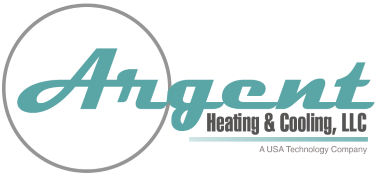Summer heat often hits particularly hard just before autumn. Yet if you and your family now seek comfort in the air conditioning, your energy bill can become a punishing reminder of the price of comfort. This leaves you in a tight predicament: sweat out the dog days of August or pay a heavy fee for relief.
At Argent Heating & Cooling, we believe that folks should feel comfortable in their homes without paying ridiculous fees. Our team provides award-winning heating & cooling system installation and maintenance for homes around the Washington, D.C. Metro region. We are locally owned and operated by proud veterans, and our technicians provide both excellent service and useful knowledge to all our customers. If you are interested in reliable thermostat repair in the D.C. metro area, look no further: Argent Heating & Cooling is here for you.
Below, we consider the ideal temperature for your home’s thermostat in order to keep you comfortable and avoid pricey bills:
The Baseline Setting
First, since every home contains a different set of residents, each calls for a distinct setting. The ideal temperature for adults differs from that of pets and infants/children. You should account for the needs of everyone in your household.
The Department of Energy advises homeowners to set thermostats to 78°F (26°C) when they are home and need cooling. While this temperature strikes some folks as rather high, it represents a happy medium between comfort and saving money. Moreover, it slows the flow of indoor heat, which helps to reduce your energy bill and acclimate residents to a reasonable temperature.
However, you should consider this temperature as a starting point or baseline that is suitable for young and grown adults. Consider exceptions in order to determine the temperature that works best for your home.
Adjusting the Baseline
Does your household include an infant or elderly resident? If so, that baseline temperature will need adjustment. While healthy adult and young adult bodies can readily adapt to various conditions, more vulnerable folks don’t enjoy the same abilities.
According to Healthline, the safest sleeping environment for a baby is a cool but comfortable 68°F to 72°F (20°C to 22.2°C). During the daytime, that temperature can rise to 74°F but no further. Infants cannot regulate body temperature nearly as well as adults, making them vulnerable to significant rises in heat.
Seniors also struggle to moderate body temperature. In fact, research indicates that even a minor rise in temperature can be deadly for elderly folks with chronic health conditions. Thus, indoor temperatures between 65°F and 74°F (18.3°C to 23.3°C) suit them best.
Acclimating Your House and Other Settings
If your home’s indoor temperature is currently several degrees below 78°F, the shift upwards can be uncomfortable and may lose steam quickly. But remember: you are aiming to save money, and that can be achieved gradually over a period of time.
Rather than setting your thermostat to 78°F from the outset, work your way up. Give yourself and your family time to acclimate to this new setting. We suggest changing the setting by a degree or two every few days, allowing time for acclimation. Be sure to consume plenty of fluids as this shift occurs so that you aren’t also fighting dehydration.
Other small shifts can help make your home more comfortable. When showering or washing hands, be mindful of the water temperature; more heat will necessarily warm your body. Also, try using a toaster or microwave instead of an oven to heat up food, since the latter will create more latent heat.
Argent Heating & Cooling: Reliable Services for the D.C. Metro Area
As we power through the end of the summer, remember: you can stay cool and maintain a reasonable energy bill by controlling your home’s interior temperature. Doing so requires a sensitive, up-to-date thermostat. If your house lacks such a system, turn to Argent Heating & Cooling for reliable thermostat repair. Throughout the Washington D.C. Metro region, our residential customers rave about our service. We are confident that you’ll be satisfied as well.
Contact us at (703) 281-6300 or fill out our online form to get your home serviced now.


